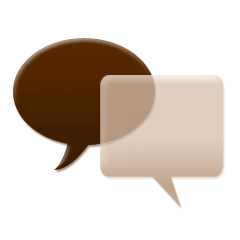
/
RSS Feed
To begin the dialogue, I thought it appropriate to post the first in a series of Digital Dialogue podcasts designed to generate discussion around questions concerning but not limited to the nature of digital dialogue, its political possibilities, the excellences associated with it and the impact is might have on our pedagogical practices.
To subscribe to the Digital Dialogue through iTunesU, click here.
In this first episode, Allan Gyorke, Ryan Wetzel and I talk about how this podcast came about, the meaning of digital dialogue and some of our experiences with digital media. We also open the discussion up to the listeners by asking you to suggest what the virtues of digital dialogue are. Please respond by commenting here.
We look forward to discussing these in upcoming podcasts.
Links to sites mentioned in this episode of the podcast:
-
- My course blog for my honors course: Patriarchal Force and Political Power
- The Grassroots Video white paper and YouTube video.


Interesting podcast. You mention the example of Socrates changing his message for the audience, and I was wondering if you could point to specific examples.
One thing I find fascinating about this period is that there were so many similar issues despite the many obvious cultural differences.
Hey Chris. I’ve been thinking of a couple of ideas, but I need your help to see if they are excellences or shed light on a certain kind of excellence.
First, is “transparency” the same as “openness”? To me, transparency means that I will explain my perspective, my process, who is involved, how I reached my decisions. Openness could mean those things too, or it could just mean that I am willing to engage in a discussion.
In these days of “Internet fame”, is “humility” an excellence that strikes a balance between obnoxious pride and self-conscious silence? I have gone to conference presentations that talk about Generation Y and their narcissism. But I don’t think it’s narcissistic to publicly discuss what you are doing.
Is there an excellence involved with sincerity, integrity, or honesty? This has a bit to do with my reaction to people who are hired by marketing companies to write positive reviews about products on sites like Amazon.com or get paid to rave about new musicians on discussion boards.
What about justice or social responsibility? Where we consider how our online discussions affect others for the better or worse. Are our online interactions indulgent, or do they seek to help others in some way?
Is there an excellence involved with community engagement or collaboration? I gain a lot by collaborating with others online, but if I did it all the time, I wouldn’t get anything done. This is probably why I leave Twitter off most of the time.
Those are my initial thoughts. I’m no philosopher, but I spend a lot of time thinking about questions like these.
Thanks, Elizabeth for listening and commenting. I want to be clear that Socrates does not necessarily change his overall message as he speaks to different people, but he does alter the way he says what he says. He is relatively consistent in arguing that philosophy is a way of life animated by a peculiar sort of knowledge: the knowledge of one’s ignorance. This is the starting point for almost all of Socrates’ discussions and it is what allows him to pursue the questions of justice, the good, etc. as ideals to be sought rather than ideas settled and known.
In any case, I think you could discern the way Socrates shifts his rhetorical strategies, his vocabulary, his tone of voice, etc. depending on his interlocutor in almost any dialogue. I mention here only the Gorgias as an example.
The Gorgias stages a conversation between Socrates and three main characters: Gorgias, the famous rhetorician from Leontini in Sicily who is visiting Athens along with his student, the second main character, Polus. The two of them are staying in Athens with Callicles, with whom the dialogue begins and ends.
In conversation with Gorgias, Socrates is respectful, good humored and polite. He goes further here to explain his own philosophical approach to Gorgias than he does in almost any other dialogue. He presumes Gorgias to be like him, the sort of person who would be as glad to be refuted if he says something false as to refute someone else (458a-b). For this reason, he seems to be more transparent about why he pursues philosophy in dialectical dialogue (see, 449b5), that is, with one person posing questions and the other responding. (Of course, it is debatable as to whether Socrates is wholly earnest in seeing Gorgias is like him in this respect.)
With Polus, however, Socrates uses more forceful language, his playfulness involves a dimension of shaming, for Polus is an eager student of Gorgias’s, who is intent on making long speeches and impressing others rather than engaging in dialogue.
Finally, with Callicles, who begins the dialogue with an insult to Socrates and who, in conversation with Socrates, never gives him any respect, Socrates becomes more an more heavy-handed. In response to Callicles’s belligerence, Socrates slowly and steadily takes over the conversation on his own terms, including, in the end, playing both the role of questioner and answerer because Callicles will not respond in good faith.
So, it is not that Socrates changes his position with various people, it is that he uses different strategies to articulate his position differently to different interlocutors.
Allan, you have clearly been doing a lot of good thinking about the question of the excellence of dialogue, digital and otherwise. I would like to pick up on a number of these themes over the course of the summer both here and on the podcast.
Since I just responded with great verbosity to Elizabeth, I thought I would just point you made that struck me as related to my response to her. That is the question of transparency in relation to openness. I think transparency is a component of the excellence of openness – if we decide to consider openness and excellence. (I wonder about this because the excellence cannot be just openness to anything, but a certain way of being open – and everything depends on how we articulate this certain way!)
In any case, when Socrates tells Gorgias that he wants to use the question/answer dialectical process to pursue the question as to what is it, precisely, that the art of rhetoric teaches, he is, I think, trying to be transparent. That is, he is laying his cards on the table and trying to show that he is not just playing a game or manipulating the situation, but wants to proceed this way so as to ensure that the discussion does not break down completely and people “end up departing on the most shameful terms” (457d).
So, we might think about transparency as linked to a certain level of trust, respect and honesty. Perhaps it is a dimension of openness, but only one side of it; for as you suggest, it also involves a certain willingness to engage, a way of reaching out beyond oneself and thus, in fact, a certain courage. So, now, it seems that our thinking about openness has led to the possibility that it names a constellation of excellences. Perhaps it is this constellation, which might include curiosity, empathy, courage, honesty, trust, respect …, that will need to be considered.
I leave these relatively unorganized to convey with all transparency my own uncertainty about openness itself.